The best fragrant plants that repel cats are certain herbs and citrus plants like the Scaredy Cat plant, lemongrass, and lavender. All of these plants emit a strong aroma that is pleasant to humans but acts as a repellent to cats, keeping them away from your garden.
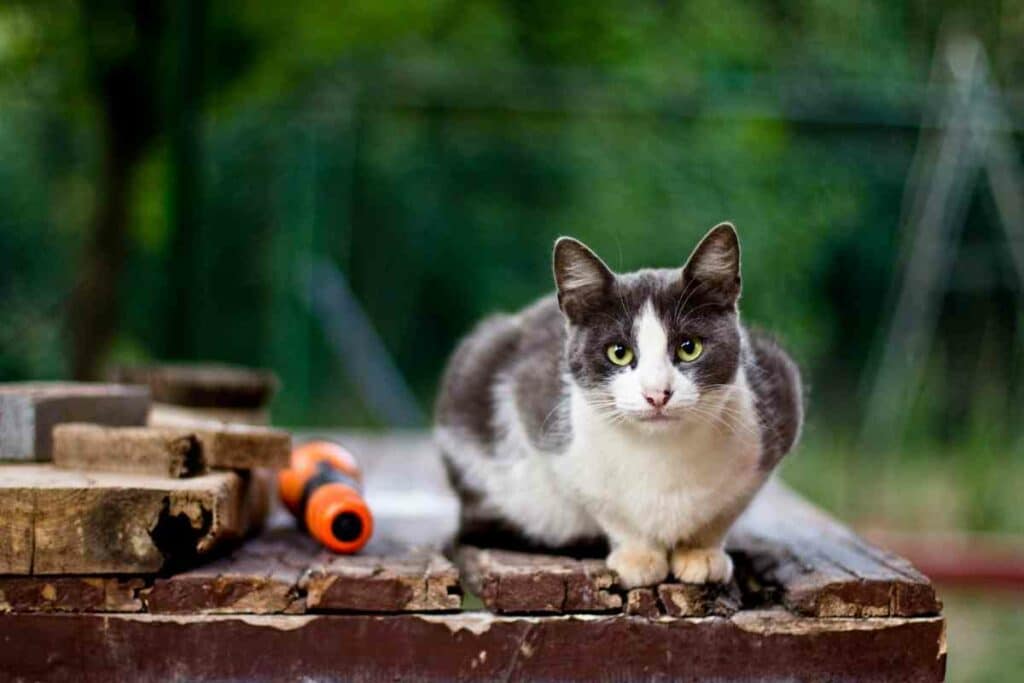
Let’s look at the top fragrant plants that repel cats.
Fragrant Plants That Repel Cats
Cats can wreak havoc in your garden, uprooting your beloved plants and generally digging up and destroying what they shouldn’t.
There are plenty of repellent fragrances available on the market today, but for those looking for a more garden-friendly approach, there’s a great range of plants that will not only look good but also repel cats and other animals.
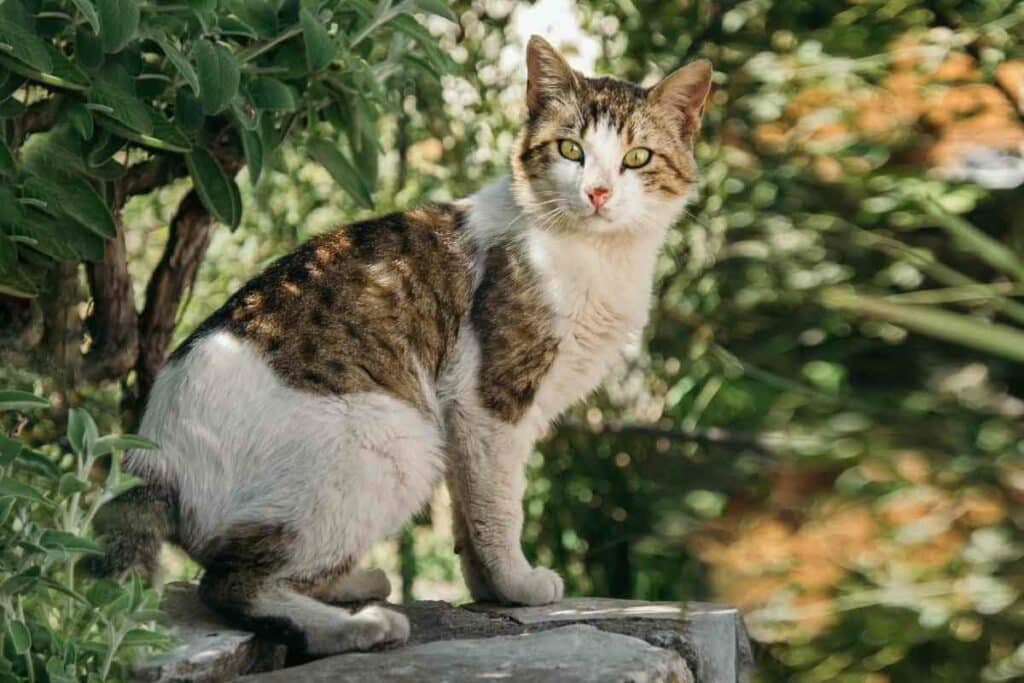
Certain plants have a strong aroma that repels cats, such as:
- citrus
- and herbal plants
Look out for any plants that emit a strong aroma, particularly plants that have a strong citrus smell.
Let’s take a look at the best.
1. Citrus Plants That Repel Cats
Cats despise the smell of citrus so plants that emit a strong citrus fragrance are a great place to start when you’re trying to repel cats from your beloved garden or even home.
The Citronella Plant
Top of this list is the Citronella plant.
Also known by its botanical name, Cymbopogon nardus, the plant is most commonly referred to as the Citronella plant, which is an aromatic perennial plant from the family Poaceae.
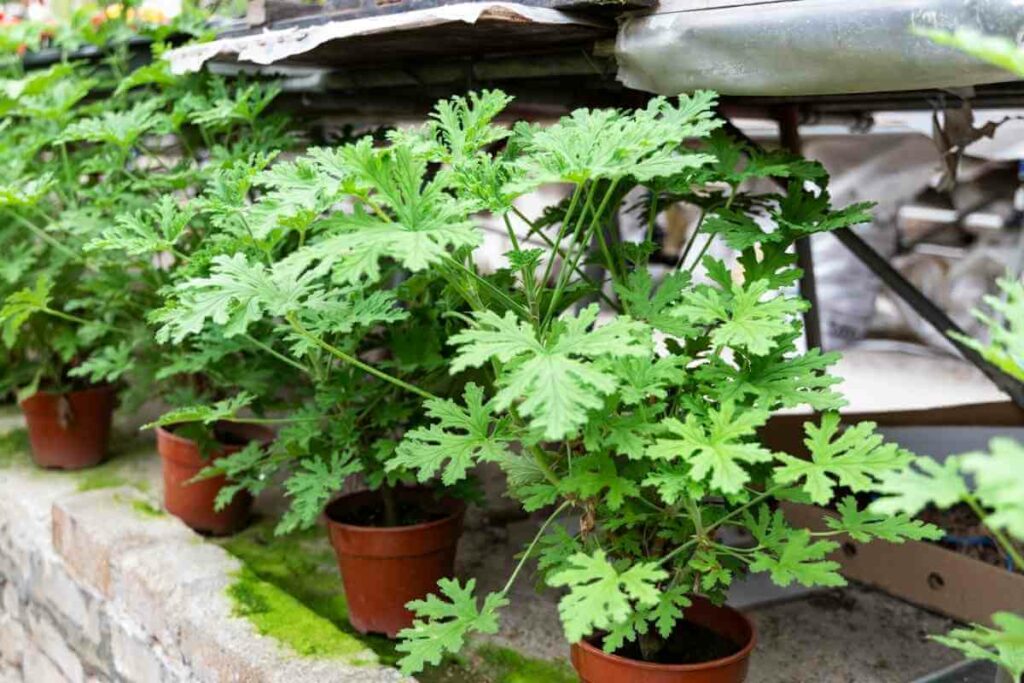
The plant emits a lovely citrus smell that is sweet and pleasant to humans.
Not only does the citrus fragrance work wonders in repelling cats, as an added bonus it also works well as an insect and mosquito repellent.
The Citronella plant is also considered unpalatable, meaning your beloved furry friend won’t go back for a second helping if they try it for a snack.
Lemon-Scented Geranium
The Pelargonium crispum is a large shrub that is a perfect houseplant or outdoor perennial depending on climate.
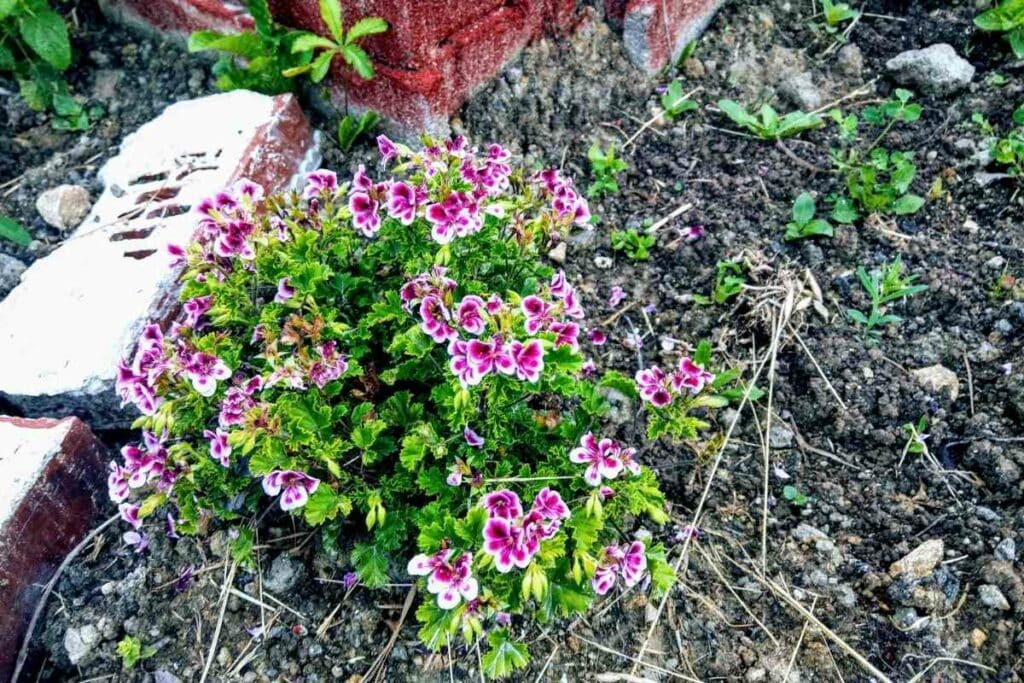
The Lemon-scented geranium has many branches that stem outward with small fan-shaped leaves and small pink flowers that appear from spring through to summer.
The leaves are considered edible for humans and have a strong lemon scent that is repellent to cats.
Due to the plants bristled nature and aroma, it is unpalatable for cats and works wonders keeping cats away.
Sweet Mock Orange
The Philadelphus coronarius (also known as the English Dogwood) is a flowering plant from the Hydrangaceae family.
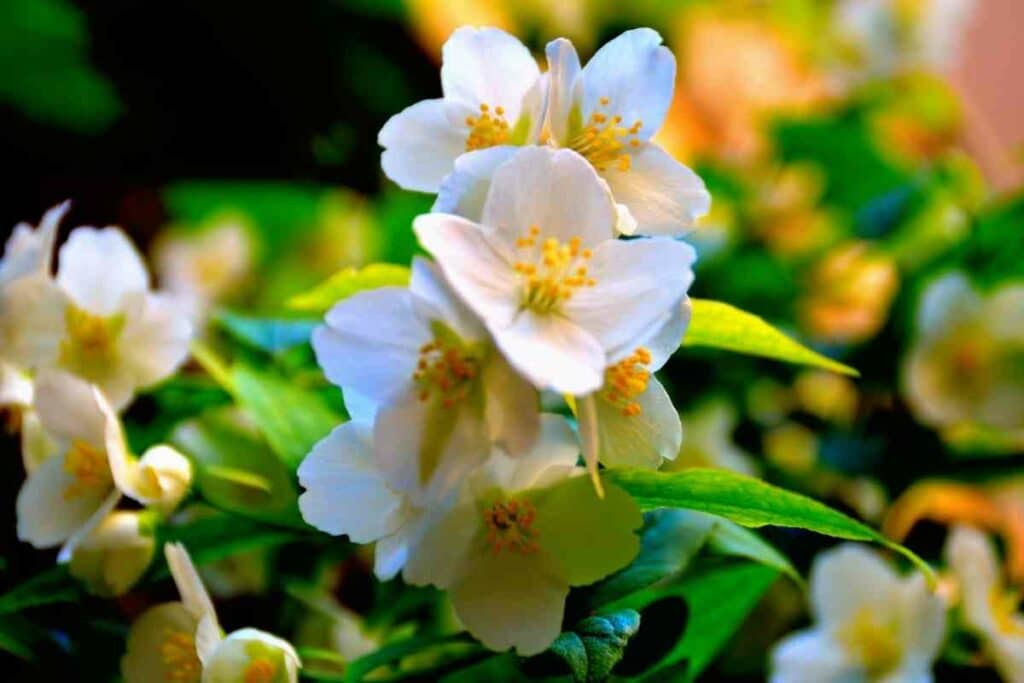
It’s native to southern Europe and grows well in full direct sunlight up to a height of 10 feet.
The shrub is ideal for repelling cats due to its bowl-shaped white flowers with large stamens that emit a strong citrus aroma and flower throughout late spring and summer.
Orange Jessamine
The Murraya paniculata plant is commonly known as Orange Jasmine (or orange jessamine) and is native to southern Asia.
The plant grows in a shrub-like form and can reach up to 23 feet in its natural habitat.
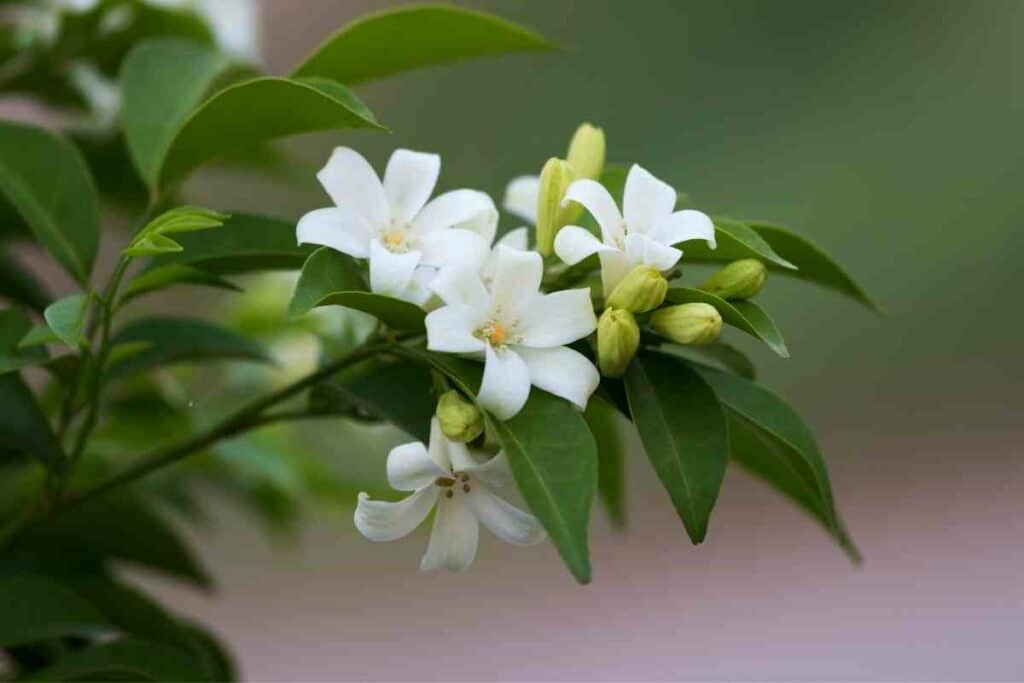
In US zones, it grows to a medium-sized shrub and is ideal as a hedge or boundary plant.
The Orange Jessamine has elliptical leaflets, fragrant white or cream-colored flowers and occasionally spurs oval red berries.
It flowers throughout the summer and releases a fragrance that combines orange and jasmine, both of which cats despise and will avoid whenever possible.
Mexican Orange
The Choisya plant is an evergreen shrub that is commonly known as the Mexican Orange due to its native habitat along the northern Mexican area and throughout the southern US states.
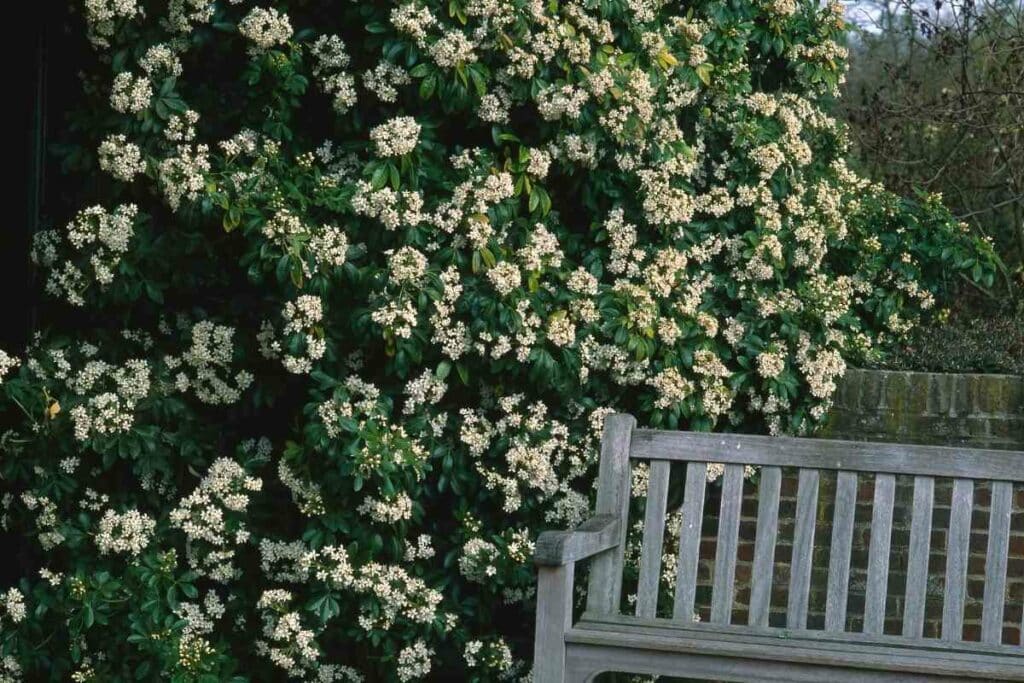
The plant grows to between 3-10 feet tall and has waxy drop-shaped leaves that are non-toxic just in case a kitty decides to take a nibble.
The plants are great for repelling cats as they emit a lemon citrus-like scent from their foliage and star-shaped flowers.
Another bonus for adding the Mexican Orange plant to your garden is they are excellent for attracting honey bees.
Japanese Cheesewood
The Japanese Cheesewood (botanical name Pittosporum tobira) is also known as the Australian Laurel and is a sweet-smelling flowering plant that is ideal when used as an ornamental plant or for hedges.

The plant grows well in most US climates but prefers warmer positions in the garden with lots of sunlight.
The plant grows long leathery leaves that are oval-shaped with clusters of fragrant flowers occurring at the ends of the branches.
The flowers are star-shaped with white petals which emit a distinctive citrus aroma that repels cats.
Good to Know: The good news for cat owners is the plant is considered non-toxic for cats.
2. Herbal Plants That Repel Cats
For those who are looking for fragrant plants that repel cats while keeping the citrus smells at bay, there are plenty of herbs that act as cat and animal deterrents with distinctive aromas.
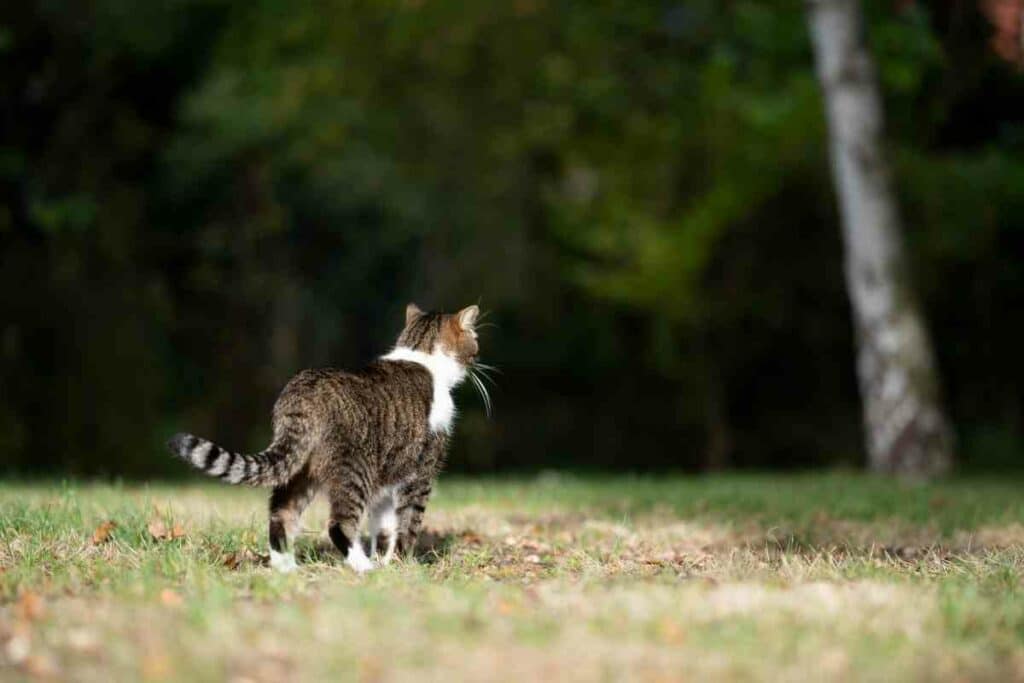
Many of these herbs are safe and edible for humans but also work perfectly well at keeping kitty out of your garden.
Scaredy Cat plant
The Coleus caninus (Scaredy Cat plant) is a species derived from the mint family Lamiaceae and is a native of southern and eastern Africa.
The plant grows well throughout all regions of the US and is well known for its pungent aroma that is responsible for its namesake.
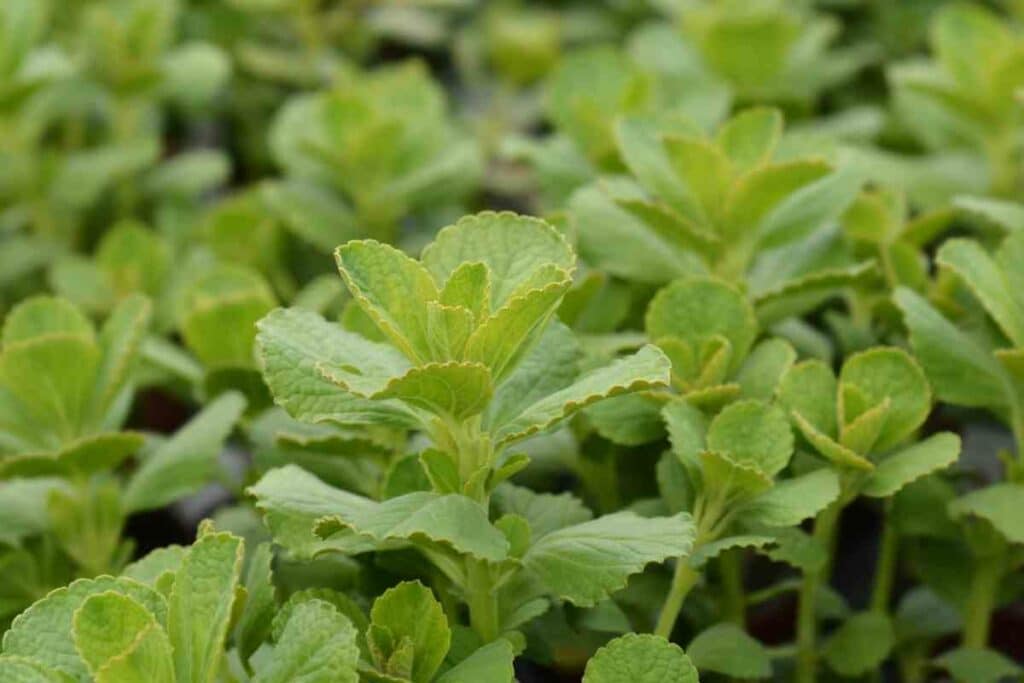
The Scaredy Cat plant has small grey-green oval leaves and violet-blue flower spikes that both emit an aroma when touched.
Even Better – While the smell is not particularly noticeable to humans, it is pungent to cats, dogs, and foxes and is used as boundary repellent in many gardens.
The aroma is considered to smell similar to dog or skunk urine and is released as soon as an animal rubs against the foliage.
Common Rue (Ruta Graveolens)
The Common Rue, also known as the Herb of Grace, is a native herb perennial to the Balkan peninsula and is well known as a hardy and effective cat repellent for gardens.
The Common Rue has white or pink flowers that release a pungent musty smell with subtle lemon or citrus tones.
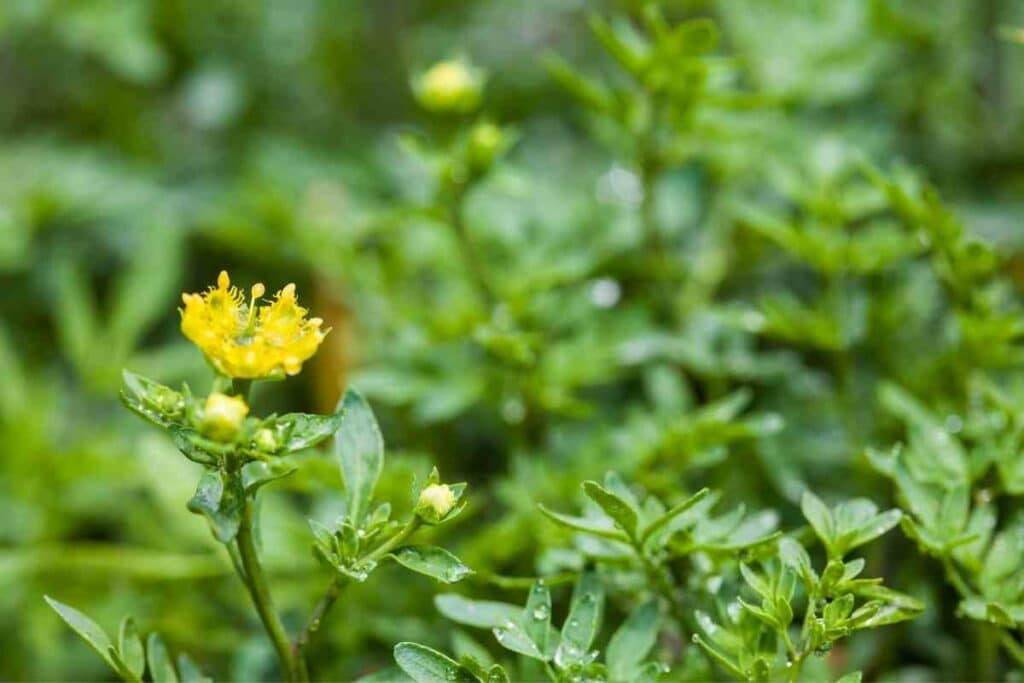
Most cats dislike the smell and will avoid the plant wherever possible.
The plant has a herbal quality that can be used by humans in cooking and has a strong bitter taste, although the herb is considered mutagenic and hepatotoxic, meaning it may cause severe intestinal irritation if ingested in large quantities.
Lemongrass
Lemongrass (Cymbopogon) is known by many names the world over and cultivated as culinary and medicinal herbs due to the citrus lemon scent.
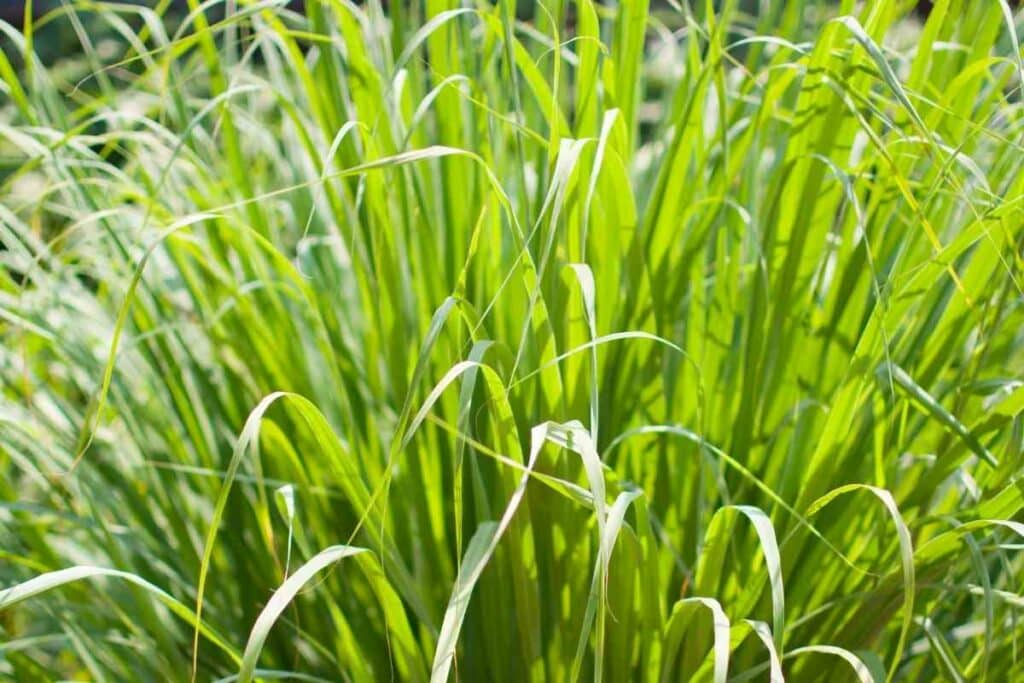
The grass is native to the African continent and grows up to 6.5 feet tall.
The long spear-like leaves and scent are ideal for repelling cats from your garden.
As a Bonus: Lemongrass is excellent for cooking and can also be used to extract the citronella scent used to make candles and soaps.
Lavender
Lavandula is most commonly known as lavender and is a flowering herb that derives from the mint species.
The plant is well known for its soft mottled grey stems and lavender-purple flowers that shoot beyond the foliage on tall stems and give the herb its namesake.
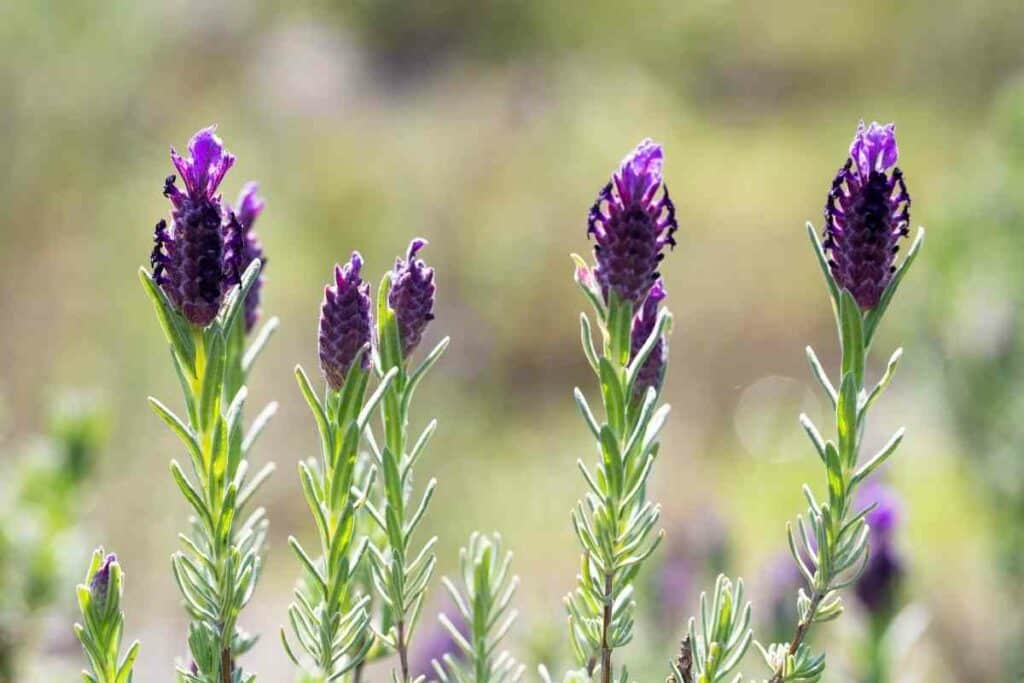
The herb grows in moderate to temperate climates and is commonly used for ornamental purposes in many gardens.
Lavender has also been proven to have medicinal and healing properties for humans who consider the fragrance pleasant.
The herb has a distinctive aroma that works as a repellent for cats and is ideal for keeping cats away from your garden.
Final Thoughts
Keeping cats out of your garden while maintaining a certain landscaped aesthetic is achievable with some careful planning and consideration.
There are many Fragrant Plants that repel cats but fragrant citrus plants work best at keeping kitty out of your garden, while there are plenty of good herbs that will also repel cats.
Use boundary shrubs and hedges with fragrances that repel cats from the outer edges of your garden.
Use a mixture of repellent herb plants and citrus plants throughout your garden to repel cats with their strong fragrance.


